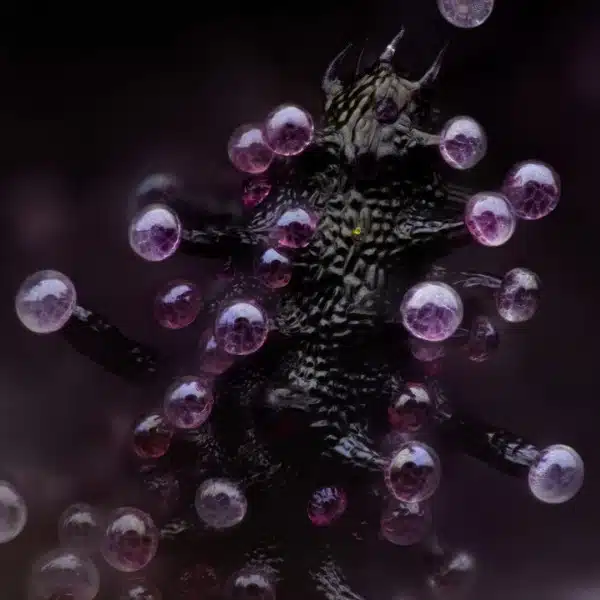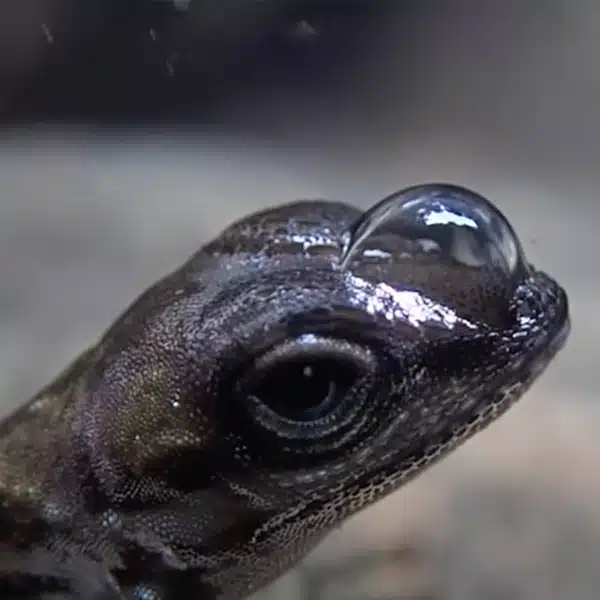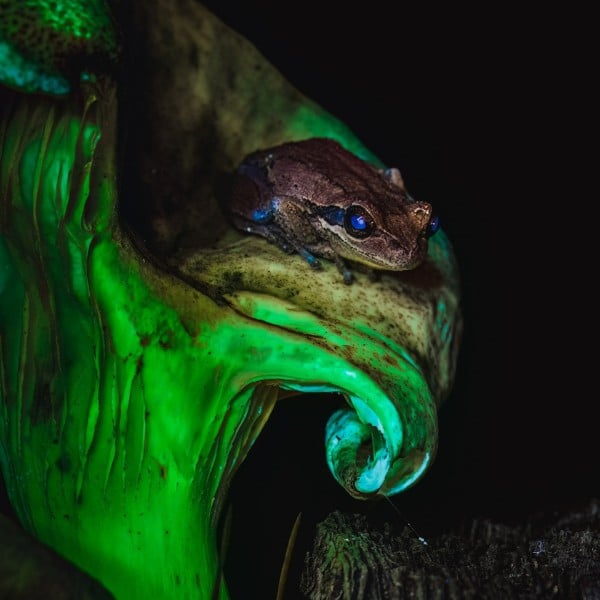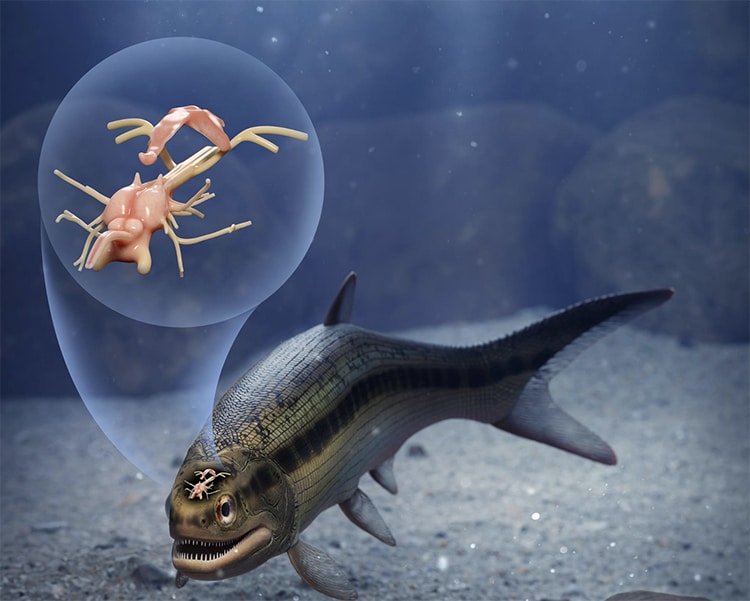
Artist's interpretation of a the 319-million-year-old fish and the earliest fossilized brain of a backboned animal. (Photo: Márcio L. Castro/University of Birmingham)
Fish are generally not known to be clever critters with tremendous brain power. Goldfish, in particular, are believed by many to have three-second memory spans, but that's not true. Another fish's brain has recently grabbed the spotlight for a different reason. A 319-million-year-old fish fossil sitting in the Manchester Museum has revealed that within its skull are a brain and cranial nerves that are the oldest well-preserved vertebrate brain ever discovered. This rare find has excited researchers around the world and is described in a Nature paper.
Discovered over 100 years ago in a Lancashire, UK, mine, the fossil was encased in soapstone. It has since sat in the museum but was recently examined by researchers. Known as Coccocephalus wildi, it is the only specimen found of its kind. Although just the skull was discovered, the fish likely stretched six to eight inches. While not originally looking for a brain, researchers discovered a strange object in the skull using CT scans. Like vertebrate brains, the object was bilaterally symmetrical, contained hollow spaces, and had multiple filaments (like cranial nerves). The brain folds inward, unlike in today's living ray-finned fishes.
Vertebrate brains decay quickly, so finding fossilized specimens is unusual. Likely the dead critter was quickly enshrouded in sediment with low oxygen levels. Senior author of the paper Sam Giles of the University of Birmingham said in a statement, “This unexpected find of a three-dimensionally preserved vertebrate brain gives us a startling insight into the neural anatomy of ray-finned fish. It tells us a more complicated pattern of brain evolution than suggested by living species alone, allowing us to better define how and when present-day bony fishes evolved.”
“Comparisons to living fishes showed that the brain of Coccocephalus is most similar to the brains of sturgeons and paddlefish, which are often called ‘primitive’ fishes because they diverged from all other living ray-finned fishes more than 300 million years ago,” he noted. The modern world's 30,000 ray-finned fish species are half of all the vertebrate species on this planet.
Learning more about how these species, and their brains, developed will shed light on brain evolution for thousands of species.
Scientists discovered the earliest preserved brain in a fossilized Coccocephalus wildi, a 319-million-year-old prehistoric fish.
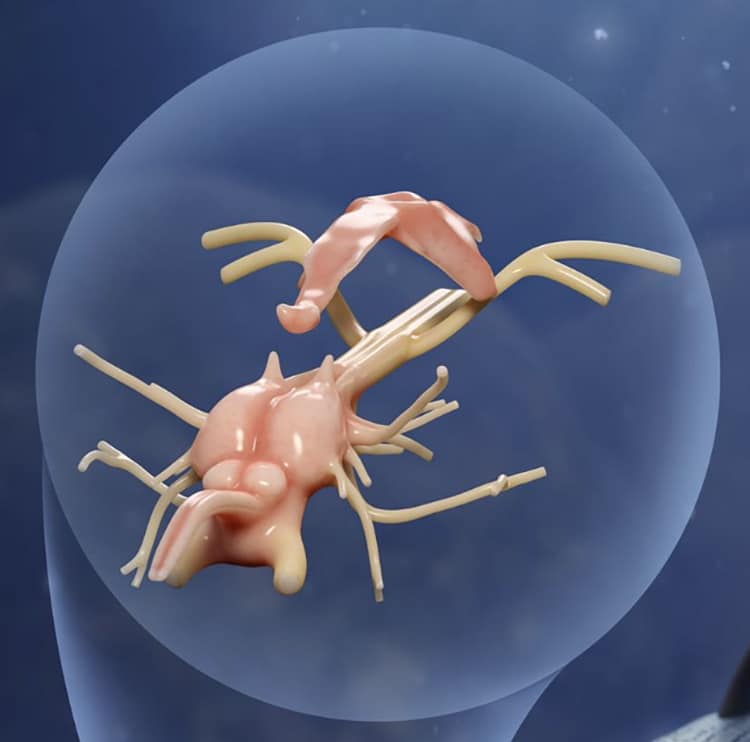
A rendering of the brain and cranial nerves. (Photo: Márcio L. Castro/University of Birmingham)
h/t: [BBC]
Related Articles:
Man Finds 82-Foot-Long Dinosaur Fossil in His Backyard
Fossil of Flying Reptile From 170 Million Years Ago Found on Scotland’s Isle of Skye
Fossil of Ancient Giant Sea Turtle the Size of a Rhino Discovered in Spain
Trove of Jurassic-Era Fossilized Fish Discovered on an English Dairy Farm
















































































